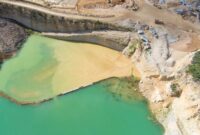When it comes to real estate investments, one sector that’s gaining increasing attention is mountain real estate. Investing in mountain properties offers a unique combination of natural beauty, tranquility, and the potential for substantial returns. For many, mountain properties represent not just a financial opportunity but also a lifestyle upgrade. In this article, we’ll explore the benefits, challenges, and strategies associated with investing in mountain real estate, and why this niche market may provide high returns for those looking to diversify their portfolios.
Why Invest in Mountain Real Estate?
The mountain real estate market offers a range of opportunities for investors looking for both short-term and long-term gains. The following reasons highlight why investing in this sector is particularly attractive:
- Growing Demand for Mountain Living
In recent years, there’s been a surge in demand for mountain properties. With more people seeking solace from the hustle and bustle of urban life, mountain real estate has become highly desirable. Whether it’s a second home for vacations or a permanent residence, people are increasingly choosing the peace and privacy that come with living at higher altitudes. This demand is especially noticeable in regions known for outdoor activities like skiing, hiking, and mountain biking. - Potential for High Rental Income
Many people who invest in mountain real estate do so with the intention of renting out the property. Whether it’s a cabin in the woods or a luxury chalet near a popular ski resort, mountain properties can command high rental prices, especially during peak tourist seasons. Platforms like Airbnb and VRBO have made it easier for investors to list their mountain homes for short-term rental, tapping into the vacation market while also covering expenses. - Appreciation in Property Values
Mountain real estate, like other types of real estate, appreciates over time. However, the appreciation potential in mountain properties can be even greater than in more traditional markets, particularly if the area is becoming a more popular destination. Limited land availability, combined with increasing demand, helps push property values higher, making mountain real estate a solid long-term investment. - A Hedge Against Economic Downturns
Real estate has long been considered a safe haven during times of economic uncertainty, and mountain real estate is no exception. Unlike other markets that can fluctuate based on local economic conditions, mountain properties are often insulated from these factors due to their desirability as vacation or second homes. Investing in mountain real estate can provide stability and serve as a hedge against market volatility. - Lifestyle Benefits for Investors
In addition to financial returns, investing in mountain real estate also offers lifestyle benefits. Owners of mountain properties have the opportunity to enjoy the great outdoors, with easy access to hiking trails, skiing, and other recreational activities. Whether as a primary residence or a vacation home, the quality of life that comes with living in a mountain environment is a major draw for many investors.
Challenges of Investing in Mountain Real Estate
While the benefits of investing in mountain real estate are numerous, it’s important to recognize the potential challenges involved. Understanding these challenges can help investors make more informed decisions and avoid potential pitfalls.
- Seasonal Accessibility and Rental Demand
One of the main challenges of mountain real estate is its seasonal nature. Depending on the location, mountain properties may be more difficult to access during certain times of the year due to weather conditions. This can impact the property’s rental demand and make it harder to attract renters during the off-season. Investors should be prepared for fluctuations in rental income and consider ways to market their properties year-round. - Higher Maintenance Costs
Mountain properties often come with higher maintenance costs than other types of real estate. Harsh weather conditions such as heavy snowfall, extreme cold, and wind can take a toll on the property, requiring regular upkeep and repairs. Investors should budget for these additional costs to ensure the property remains in good condition and retains its value. - Limited Infrastructure and Services
Another consideration when investing in mountain real estate is the potential for limited infrastructure and services in remote areas. Depending on the location, you may find that access to utilities, internet, and other essential services is more difficult than in urban areas. Additionally, emergency services may take longer to respond in more isolated mountain regions. - Environmental and Zoning Regulations
Mountain areas are often subject to stricter environmental and zoning regulations. Investors should be aware of any local restrictions related to land use, building codes, and environmental protection. These regulations can affect your ability to develop or modify the property, so it’s important to research local laws before making an investment.
Key Strategies for Successful Mountain Real Estate Investment
To maximize the potential for high returns on your mountain real estate investment, it’s essential to approach the market with a clear strategy. Here are some tips to ensure success:
- Research the Local Market
Before investing in any mountain property, it’s crucial to thoroughly research the local real estate market. Look at historical trends in property values, rental demand, and the area’s popularity as a vacation destination. Understanding these factors will help you make informed decisions and identify opportunities for growth. - Choose the Right Location
Location is everything in real estate, and this is especially true for mountain properties. The most successful mountain real estate investments are typically located near popular tourist attractions or outdoor recreational areas. Proximity to ski resorts, hiking trails, lakes, and national parks can significantly increase the value of your property and its rental potential. - Diversify Your Rental Strategy
If you’re planning to rent out your mountain property, it’s important to consider diversifying your rental strategy. While short-term rentals may be lucrative during peak seasons, offering long-term rental options can provide more stable income during the off-season. Additionally, marketing the property as a retreat for remote workers can help attract renters year-round, especially as more people embrace remote work. - Leverage Professional Property Management
Managing a mountain property from a distance can be challenging, especially if you’re not located nearby. Hiring a professional property management company can take the stress out of day-to-day operations and ensure that the property is well-maintained. A property manager can handle everything from maintenance and repairs to guest check-ins and marketing, allowing you to focus on maximizing your investment returns. - Consider the Environmental Impact
As an investor in mountain real estate, it’s important to be mindful of the environmental impact of your property. Sustainable practices such as energy-efficient heating, water conservation, and eco-friendly building materials can not only reduce your property’s operating costs but also make it more attractive to environmentally conscious renters and buyers.
Conclusion
Investing in mountain real estate presents a unique opportunity to enjoy both high altitude and high returns. With growing demand for mountain living, the potential for strong rental income, and appreciation in property values, it’s no wonder that more investors are turning to this niche market. However, as with any investment, it’s essential to understand the challenges involved and approach the market with a well-thought-out strategy. By carefully researching the local market, choosing the right location, and leveraging professional management, you can maximize the potential of your mountain real estate investment and enjoy both financial and lifestyle benefits.




